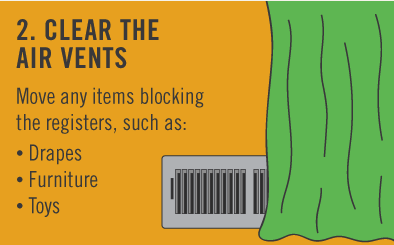Heatpump Vs Furnace - Which Is The Better Home Heating Choice For Your Home?
Heatpump Vs Furnace - Which Is The Better Home Heating Choice For Your Home?
Blog Article
Content Author-Pearson Smith
Several property owners know with furnaces, which warmth homes with oil or natural gas and push hot air via ductwork. They are fairly inexpensive and can give dependable home heating also throughout a winter season power blackout.
Nevertheless, they use fossil fuels and create carbon monoxide and other air pollution. check out the post right here as energy-efficient as a high-efficiency heat pump.
Cost
Usually, heatpump are much more cost effective to operate than heating systems. They normally utilize electrical energy and cooling agent to extract heat from outside air, and after that transfer it into your home. You can benefit from less expensive electrical energy rates during off-peak hours to even more reduce your heating costs.
Unlike heatpump, gas or wood-burning heating systems make use of burning to create warmth, releasing flue gases right into the ambience that can be unsafe to your health and wellness. These furnaces are also much less energy-efficient than heat pumps, and their greater operating expense can accumulate over time.
Furnaces are extra difficult than heat pumps and call for routine maintenance to make certain the proper function of all components. In spite of this, they tend to last longer than heatpump with a typical life expectancy of 20 years or more. Nonetheless, you'll require to consider the expense of gas, fuel oil or timber and the extra devices needed for installment and procedure such as air ducts and ventilation systems.
Power Effectiveness
Heatpump have a higher power effectiveness score than heating systems. These systems make use of electrical energy to scavenge heat from the air, even in freezing temperatures. They can also remove excess heat from the home during warmer months and reuse it to cool down the system. Provider specialists can help you determine the very best model for your home on climate and resource energy costs.
Heaters burn gas oil, propane, natural gas or various other kinds of nonrenewable fuel source to heat up the air in the home. This air is after that distributed through ductwork utilizing a huge fan. Heaters create greenhouse gases and require routine maintenance and tools upgrades to make sure safe operation.
The most significant benefit of a heater is that it can be operated even in severe wintertime problems due to the fact that it does not count on outside temperature levels to heat the air. Heating systems likewise have a longer lifespan than heatpump and typically last 15 years. They can likewise be paired with double fuel alternatives, which choose one of the most effective heating choice based on the climate.
Environment
Heat pumps function well in moderate environments and make use of less source energy than heating systems. Nonetheless, if your region is remarkably chilly, you may need to purchase a conventional gas furnace instead.
Heaters supply cozy, cozy warm and typically offer rapid home heating to raise interior temperature levels. These systems can be used with a selection of fuel kinds, consisting of gas, gas, oil or electricity.
They consume more energy than heat pumps-- up to 3x as much-- and require ductwork that's expensive to install or retrofit. They're additionally more pricey to maintain, as they can trigger air top quality problems and generate greenhouse gas emissions.
If you're dedicated to decreasing your carbon impact, a heatpump is a good option for your home. They have less greenhouse gas discharges than heaters, especially if you choose an ENERGY CELEBRITY ® heat pump. Your local copyright specialist can describe the distinctions between these 2 heater and help you make the best decision for your distinct demands.
Personal Preferences
Furnaces can be extremely energy reliable when powered by gas, propane or oil, however they aren't as power reliable as heat pumps in frigid environments. They can likewise be extra pricey to set up, calling for gas lines and air flow systems.
Nevertheless, heating systems have a tendency to need much less upkeep, which can lead to lower continuous prices. They generate less greenhouse gases and are more trustworthy than heatpump throughout extreme weather.
Electric heat pumps are much more versatile in producing interior convenience because they can additionally work as air conditioning system during warmer months. They can be more convenient to maintain, needing just normal air filter modifications and occasional vacuuming.
If you prefer the ease of a solitary system that does it all, consider a crossbreed home heating solution that sets a furnace with an electrical heatpump. These systems can immediately switch in between the two home heating choices based upon your home's demands and temperature conditions, making the most of effectiveness and financial savings.